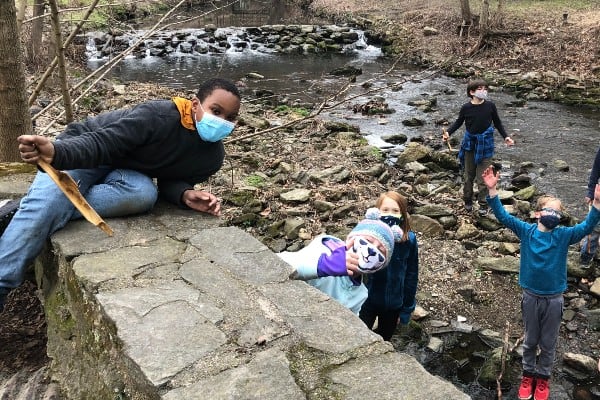A study from the University of South Australia, published in the journal PLOS One, assessed the impacts of unstructured nature play on the health and development of young children. They found that any activity that gets children thinking and acting spontaneously outdoors without needing adult control can help them develop complex thinking abilities, social skills, and creativity.
In the systemic review, the researchers looked at 16 studies which involved unstructured, free play in nature (forest, green spaces, outdoors, gardens) and included natural elements (highly vegetated, rocks, mud, sand, gardens, forests, ponds and water).
The studies indicated that these activities improved children’s levels of physical activity, health-related fitness, motor skills, learning, and social and emotional development. The studies also showed that nature play may improve thinking and learning outcomes, such as concentration and social, imaginative, and functional play.
Read the Study: The impacts of unstructured nature play on health in early childhood development: A systematic review
Photo Credit: The Waldorf School of Philadelphia













